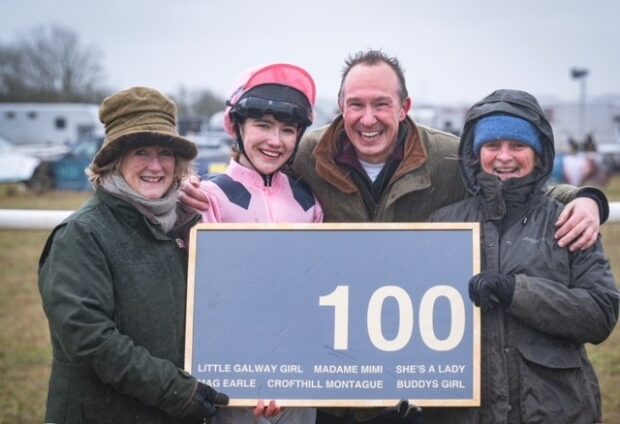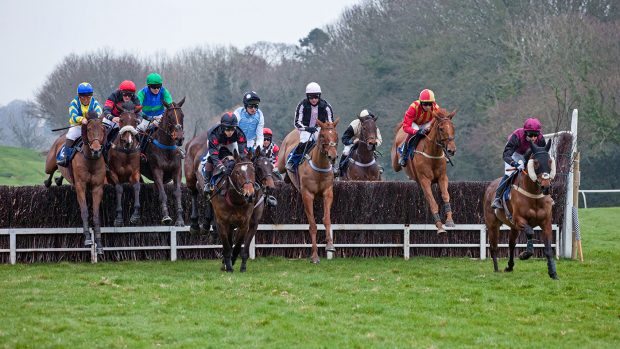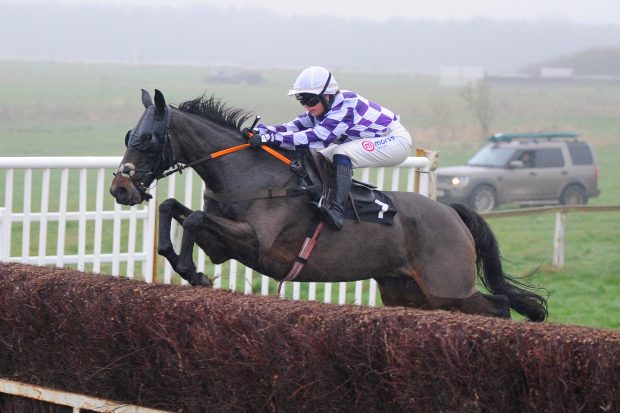The current qualification conditions state that every horse which runs in a point-to-point or hunter chase in 2005 must have been hunted at least four times. The minimum number was previously seven, but was reduced by the Masters of Foxhounds Association for the 2003-4 hunting season.
Some point-to-point owners and trainers welcomed the change, but there were many who felt it was admitting defeat in advance of the threatened ban. As this is now on the card for February, masters will have the authority to use discretion with regard to qualification after 18 February, as was the case with foot-and-mouth in 2001.
The majority of hunts have a point-to-point subscription, which is slightly less than the full sub. This usually entitles the horse to be hunted as many times as the owner wishes, although a few hunts will not allow any more than the specified four occasions.
Many trainers, such as Caroline Bailey and Gordy Edwards, are strong believers in the benefits of hunting those horses with the temperament for it, and will continue to send out their charges more times than is required for qualifying.
As the horses hunt more, they get fitter and are liable to take more of a hold, but however strong they are, Gordy still prefers to fit a snaffle. Bridging your reins and keeping a good hold helps, but as much as anything, it’s a question of mind over matter and trying to keep calm.
Registrations
- A point-to-point horse has to be registered in order to run. A certificate stating that the qualification regulations have been met must be obtained from the master of the hunt and registered at the Racing Calendar Office at Weatherbys, at a cost of £48.68, before the horse can be entered.
- It will cost upwards of £100 per week to have a horse in training in a point-to-point livery yard. This covers the board and training fees, but will not include any extras such as veterinary expenses, farriery and transport.
- Every rider has to pay the compulsory insurance premium, which for 2005 is £150.66 (plus the administrative fee of £5.50) or £45.40 for those who have one ride only in a hunt race. The insurance scheme has been arranged in liaison with British Equestrian Insurance Brokers, and the rider pays the premium to the Jockey Club’s point-to-point department when he applies for his Rider’s Qualification Certificate (RQC).
- To obtain an RQC, a payment to the hunt with whom the would-be jockey is qualifying is required. This is designated by the amount that would be paid for a cap — one day’s hunting. One RQC entitles you to ride in a maximum of three hunt races, in which case the “cap” would be made to the host hunt on each occasion.
- Riders must also have a Medical Record Book (MRB), issued by the Jockey Club office. Both the RQC and the MRB have to be lodged with the declarations clerk on the day of racing and collected at the end of the meeting. A £60 fine will be imposed if the MRB is not produced, and a replacement, if it is lost, will cost £42.34.
- Those having a first ride will be issued with an MRB when their RQC application has been processed and after passing a medical examination with their GP, who has to complete a Jockey Club medical form. The examination is also mandatory at the ages of 25, 30, 35, 40 and 45 years, and thereafter annually.
|
||
 |
||


 Get up to 19 issues FREE
Get up to 19 issues FREE TO SUBSCRIBE
TO SUBSCRIBE 


